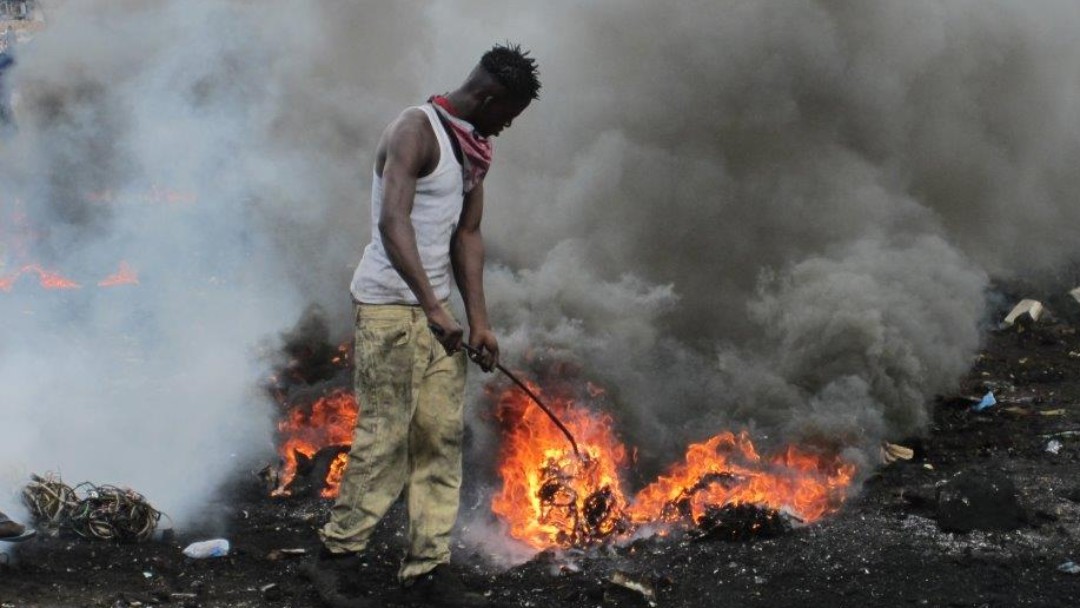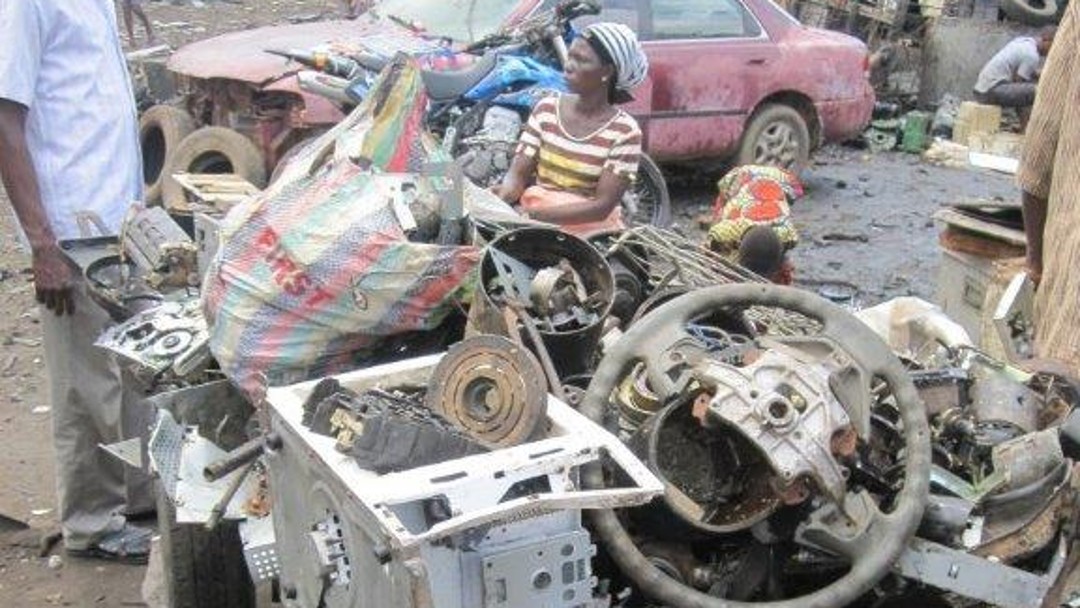News from 2017-03-08 / KfW Development Bank
Scrap recycling done right
Innovative solution for disposing of harmful electrical waste in Ghana
In Ghana, electronic scrap is recycled by unofficial collectors, but not properly. The collectors place their health and the health of local residents at risk when they strip old televisions or computers and burn the plastic parts in the process. On behalf of the German Federal Government, KfW is supporting a new approach for environmentally-friendly recycling that simultaneously ensures that the income of the collectors is not jeopardised.
An acrid smell permeates the Agbogbloshie district of Ghana's capital city, Accra. Approximately 9,000 to 12,000 collectors hoard and salvage electronic scrap here. The neighbourhood, a conglomerate of mostly slum-like houses and huts, market stands and trash heaps, is also called "Toxic City". Everyone knows that processing the scraps not only places people's health at risk it also pollutes the food items in the nearby market and the groundwater. Heavy metals and pollutants have already been detected in the soil.
Some of the waste is from Ghana itself, where they often use appliances with a short useful life. But goods from Europe also end up in Agbogbloshie again and again, even though the "Basel Convention on the Control of Hazardous Wastes and their Disposal" prohibits export.
Boys and men burn the plastic coverings from copper cables to access the valuable raw material. They also set fire to plastic parts from electronic devices. Dioxins, which cause cancer, are released in the process. The disposal of batteries and monitors containing lead results in exposure to heavy metals. The collectors live from their hazardous work. Closing the landfill sites would threaten their economic livelihood and only relocate the problem.

At the initiative of the Federal Ministry for Economic Cooperation and Development (BMZ), the government in Ghana and KfW developed a project together. It envisions a different solution: the electronic scrap that is particularly hazardous to recycle is purchased from the collectors for a price that is close to but perceptibly above the market price. This removes the waste from unregulated recycling. Companies with experience and the necessary equipment are then commissioned with proper, environmentally friendly waste disposal. Previously, these parties were not able to compete with the unofficial collectors and mainly worked for large local companies with ambitious environmental standards.
The difference between the – artificially raised – purchase price for the electronic scrap and the market value is borne by KfW financing. The construction of the collection point is also financed this way. KfW is initially supporting the project with EUR 10 million. An additional EUR 10 million will be provided if the concept works. The goal is to buy up at least 200 tonnes of cables and 2,000 tonnes of plastic casing and bring these to regulated recycling centres.
Ghana has already taken a step forward and converted the Basel Convention into national law. Since summer 2016, this has created a legal basis to counteract unofficial recycling. Furthermore, import duties were defined for old electronic devices. The income from these duties shall benefit proper disposal. This is also an important step for embedding the innovative project approach into a sustainable Ghanaian financing concept.


Share page
To share the content of this page with your network, click on one of the icons below.
Note on data protection: When you share content, your personal data is transferred to the selected network.
Data protection
Alternatively, you can also copy the short link: https://www.kfw-entwicklungsbank.de/s/enzBWrMC.BiVA
Copy link Link copied